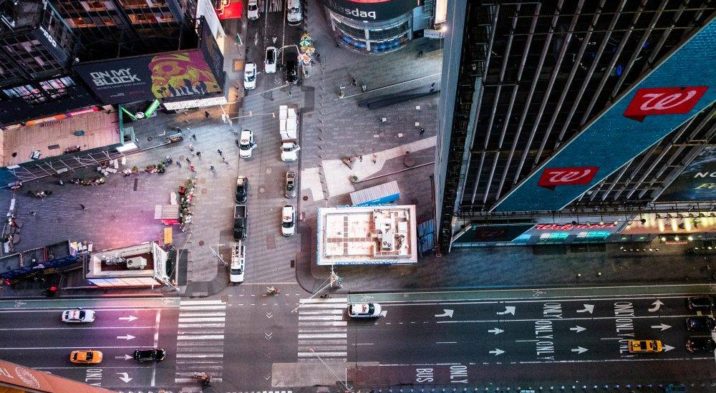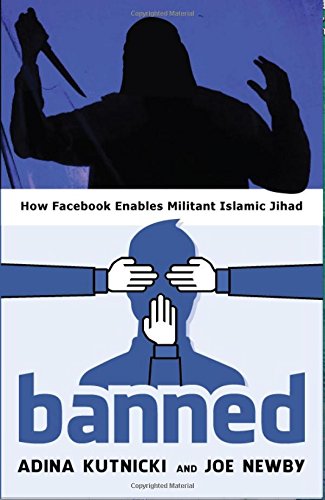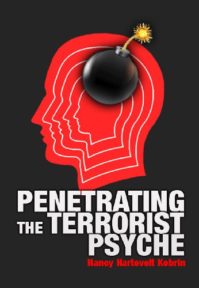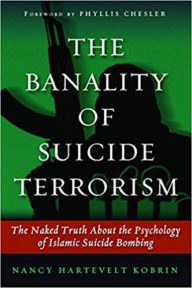
The Psychological Cost of a Prolonged Lock-Down – Interview With Dr. Nancy Kobrin
By Rachel Avraham Israel National News April 1, 2020
While many journalists have reported on the economic consequences of a prolonged lock-down, not that many Israeli writers are bringing to the fore the psychological cost of such a policy in order to fight against the coronavirus. While most people acknowledge that the coronavirus is a horrible pandemic that threatens all of our lives, as the high death toll across the globe demonstrates, a recent interview of a series of mental health professionals saw them warning that even battle-hardened Israelis who live in Sderot are not psychologically prepared for living in a prolonged lock-down.
According to the report, many Israelis are finding that the normal terror threat that we are used to has not really prepared us to “psychologically handle” this pandemic. While this lock-down may have the potential to prevent us from becoming like the USA, Italy or Iran, it does not come without a possible high psychological cost.
Dr. Nancy Kobrin, a prominent psychoanalyst and counter-terror expert, defines psychological resistance as “the capacity to recover quickly from difficulties.” While the Israeli people have developed the psychological resistance necessary in order to fight a war against terrorism, this does not necessarily extend to the coronavirus pandemic. Thought must be given to how to give people the tools to function once the pandemic is over.
Furthermore, Dr. Kobrin noted that many Israelis “will have difficulty in being able to self-soothe and calm themselves down. It is difficult because we can’t see the virus.” It is very hard psychologically to fight against an “invisible enemy.”
In a recent article, Israeli American journalist Dr. Seth Frantzman warned that Israelis may even be collectively traumatized from a prolonged lockdown after it ends: He avers that “people will be fearful of going far from home, worried about another lockdown that may strand them away from relatives. They will be like battered citizens, emerging from a totalitarian system, traumatized and afraid. They have seen their governments transformed overnight and their system and way of life disappear. Their children thrown out of schools, their people herded and concentrated into cities. No one will want to go on cruise ships anymore. They will stay close to home. They won’t have much disposable income. A generation of people will spend their lives worrying about what comes next and checking the news for new pandemics. They always know that with the flick of a switch and no discussion, all of their businesses and roads can close and their travel can be restricted by governments.” Thought has to be given on how to prevent this.
While normal Israelis are finding the lockdown psychologically challenging, terror victims and rape survivors that suffer from PTSD and complex PTSD are liable find the present reality that we are living in Israel especially psychologically distressing.
Daniele Knap, who lost her son Claude in a suicide bombing during the Second Intifada, related that she also is suffering recently from loneliness and depression with increased intensity.
Knap can no longer visit her remaining children and her grandchildren. She also has been cut off from her boyfriend, who is in assisted living since he suffered a stroke. Furthermore, she lost all her teeth and she cannot even continue to go to a dentist in order to fix her problem. Living in such secluded isolation has prompted her to focus more on the loss of her son Claude, especially because his yahrzeit is this month. This has resulted in her needing to take additional medication in order to help her cope with depression.
Iranian journalist Neda Amin, who lives in Jerusalem and suffers from severe PTSD after she was gang raped at age 17 and subsequently raped in a separate instance in her twenties by the Iranian Revolutionary Guards, noted that this lock-down is forcing her to focus more on her trauma for it has taken away all the usual distractions from her pain that she would take advantage of, such as going to visit the Western Wall and King David’s Tomb, strolling around the Old City, going to the Mediterranean Sea, seeing friends, etc. Virtual tours, internet lectures, whatsapp groups and Zoom help other Israelis cope, but since the lock-down, she struggles to sleep during the night and thus is forced to sleep away much of the day in the hopes of clocking out as a means of trying to remain sane during these difficult times.
Orit Sulitzeanu, the executive director of the Association of Rape Crisis Centers in Israel, noted that rape survivors who suffer from PTSD and especially complex PTSD in their past are very much suffering right now: “This national trauma triggers their own private trauma.” Personally, I spent seven years recovering from the trauma of childhood rape in various hospitals and suffer from complex PTSD. The present reality of the lock-down so badly triggered my past trauma that I needed additional psychological sessions online and medication in order not to lose my sanity.
That idea can help others, but Sulitzeanu noted that not every rape survivor who suffers from complex PTSD is that fortunate for many of the victims “don’t work regularly and they don’t have money. They used to get social workers from the government. Now, they don’t exist.” Furthermore, she added that some “need the aid of a psychological ward and a place to rehabilitate but now, they do not exist. So, these days, if a rape victim regresses and wants to commit suicide, now they will take her to a psychiatric hospital with all the other cases, but she needs special treatment. The people that need a lot of help are not getting what they need.”
Women and girls who come from families where sexual and domestic violence is the norm have become essentially prisoners in their homes in the wake of the lockdown. Media reported a 5 percent increase in domestic abuse since the lockdown, a statistic confirmed by Sulitzeanu: “We got increased chats online during the coronavirus crisis. Some of them say that they had to go back to abusive homes. Therefore, they meet their perpetrators. Mentally, it lowers them. A girl cannot go to school and escape the situation anymore.”
“I understand it is a pandemic and you have to adopt extreme measures to save lives, but you cannot disregard people with special needs and victims of sexual assault/rape have special needs,” Sulitzeanu said.
According to the Association of Rape Crisis Centers in Israel – although cullural differences have to be taken into account, it is still worrisome – “in the Hubei province in China since the coronavirus outbreak, there was a 300% increase in incidents involving domestic and sexual violence.” She added: “We must recognize that the domestic danger can be greater than the danger outside and act accordingly.”
For this reason, Minister Gilad Erdan ordered that the police engage in special supervision in areas where incidents of sexual and domestic violence are a risk factor during the coronavirus crisis. More should be done in order to ensure that treatment options remain available for terror victims and rape survivors who suffer from PTSD and complex PTSD as mental health is no less important than physical health.
It is true that individuals who can afford private therapists online can get help virtually. But meanwhile, the rest are forced to rely upon crisis hotlines and overwhelmed mental hospitals for too many of the mental health clinics have been shut down. Hebrew daily Maariv reported that 60 percent of the social workers dealing with domestic abuse are presently on unpaid leave. Even more unfortunate, Joan Jacobs, an emotional healing specialist who works for BGU, also noted that too many Israelis are reluctant to get help these days for they feel that therapy must be person-to-person. She claims that too many Israelis are unable to adjust themselves to the new reality by accepting online help, even if they badly need it. Zoom and whatsapp can make it almost face to face.
As Dr. Kobrin noted, people who suffer from PTSD and complex PTSD have memories “that feeds into a past traumatic history of not being able to articulate what is emotionally distressing. This is especially so if someone is being treated pharmacologically as well since the biochemistry of the body can get off kilter due to stress, lack of sleep, depressive self-states, suicidal ideation — these are issues that can be addressed and need to be.”
In conclusion, Sulitzeanu declared: “Because of the problems, all of the infrastructure of social aid and psychological treatment is breaking down. People are not really meeting face-to-face. There is psychological aid but many of the places are not open now. The way that abused women and girls could have gotten support does not exist today. The government must look at the people. They must take all the sectors of the society under consideration. Some other diseases can also kill. Depression can also kill. If action is not taken, we may, G-d forbid, see more women and girls who try to commit suicide.”







